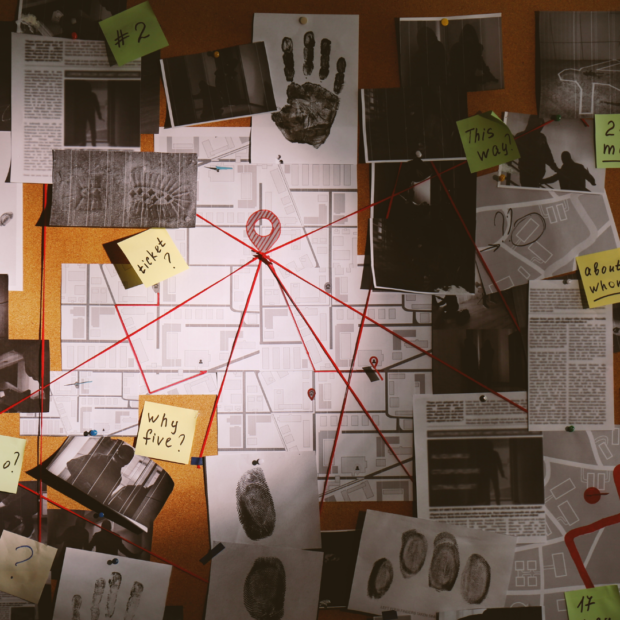Welcome to the exciting and mysterious world of forensic accounting in private investigations. While you may have heard of forensic accountants helping to solve crimes in movies and TV shows, the reality is equally fascinating.
Understanding Forensic Accounting
Forensic accounting is like being a financial detective. It’s the art of examining financial records and transactions with a keen eye for detail and an analytical mindset. Forensic accountants use their expertise to investigate financial discrepancies, fraud, and white-collar crimes. They work to uncover hidden assets, track suspicious transactions, and provide crucial evidence in legal cases.
The Versatility of Forensic Accounting
Forensic accountants aren’t limited to just one field. They apply their skills in various domains, including:
- Corporate Investigations: In the business world, forensic accountants play a significant role in uncovering embezzlement, financial fraud, and corporate espionage. They help companies maintain integrity and ensure that their financial records are accurate. Contact Bondrees if you need to learn more about these types of investigations.
- Legal Cases: Forensic accountants are often called upon to serve as expert witnesses in legal proceedings. They provide expert testimony and present complex financial data in a way that judges and juries can understand.
- Insurance Claims: When insurance companies suspect fraud in a claim, they turn to forensic accountants to investigate. These experts help determine whether a claim is legitimate or part of a fraudulent scheme.
- Divorce Proceedings: During divorce cases, forensic accountants assist in evaluating and dividing marital assets. They ensure that both parties receive a fair share based on accurate financial information.
- Anti-Money Laundering (AML) Compliance: Financial institutions rely on forensic accountants to detect and prevent money laundering activities. They track suspicious transactions and ensure that banks comply with AML regulations.
Now that we have a broader understanding of forensic accounting’s versatility, let’s delve into some of the intriguing aspects of this profession.
The Art of Uncovering Financial Secrets
- Tracing Hidden Assets: Forensic accountants are skilled at tracking down hidden assets that individuals or companies may try to conceal during legal disputes. They follow a trail of financial transactions, unearthing hidden bank accounts, offshore holdings, and other valuable assets.
- Spotting Red Flags: Financial fraud often leaves behind subtle red flags. Forensic accountants are experts at recognizing these signs, such as unusual accounting entries, discrepancies in financial statements, or irregular cash flows.
- Unmasking Money Laundering: Money laundering is a complex process of making illegally obtained funds appear legitimate. Forensic accountants use their knowledge to follow the money trail and identify suspicious patterns that may indicate money laundering activities.
The Investigative Process
- Gathering Evidence: Forensic accountants start by collecting financial records, bank statements, tax returns, and any other relevant documents. They also interview individuals involved in the case to gather information.
- Data Analysis: Once they have the necessary data, forensic accountants analyze it meticulously. They look for inconsistencies, discrepancies, and irregularities that could point to fraudulent activities.
- Financial Modeling: In some cases, forensic accountants create financial models to simulate different scenarios and test the validity of financial transactions. This helps in understanding the potential impact of fraudulent activities.
- Documentation: Throughout their investigation, forensic accountants maintain detailed records of their findings. These records serve as evidence in legal proceedings and help build a compelling case.
The Role of Technology
- Advanced Tools: Forensic accountants rely on cutting-edge technology to assist them in their investigations. Data analysis software, data mining tools, and financial modeling software are essential in unraveling complex financial schemes.
- Cybersecurity: With the rise of digital transactions, forensic accountants also play a crucial role in investigating cybercrimes. They track digital footprints, analyze online financial transactions, and work closely with cybersecurity experts.
Real-Life Case: Bernie Madoff’s Ponzi Scheme
One of the most infamous cases in recent history is that of Bernie Madoff’s Ponzi scheme. Let’s take a closer look at how forensic accountants played a pivotal role in uncovering this massive financial fraud.
Step 1: Detection
- The suspicion: Investors and financial experts became suspicious of consistent high returns Madoff’s firm claimed to offer, even during market downturns.
- Forensic accountants began analyzing Madoff’s financial records and transactions.
Step 2: Investigation
- The audit: Forensic accountants meticulously examined Madoff’s financial statements, revealing inconsistencies and implausible investment strategies.
- Tracing the money: They followed the money trail, uncovering the fact that Madoff was using new investments to pay returns to earlier investors—a classic sign of a Ponzi scheme.
- Collaboration: Forensic accountants worked closely with federal agencies and legal authorities to build a case against Madoff.
Step 3: Legal Action
- Arrest and conviction: Bernie Madoff was arrested, tried, and convicted for running the largest Ponzi scheme in history, defrauding investors of billions of dollars.
- Recovery efforts: Forensic accountants continue to work on recovering funds for the victims of the scheme, helping to provide some restitution.
The Human Element
Forensic accounting isn’t just about crunching numbers; it’s about understanding human behavior and motivations. Forensic accountants often need to:
- Interview Witnesses: They conduct interviews with individuals involved in the case, extracting information and uncovering key details.
- Understand Psychology: Understanding why someone committed financial fraud can be as important as uncovering the fraud itself. Forensic accountants need to delve into the psychology of white-collar criminals.
Conclusion
Forensic accounting in private investigations is a captivating field that combines financial expertise with investigative skills. These professionals play a critical role in uncovering financial fraud, tracking hidden assets, and providing essential evidence in legal cases.


